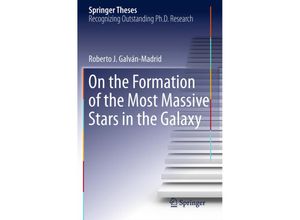The most massive stars in the galaxy - those with more than 15 to 20 solar masses - are lilkely
to ionize their surroundings before they reach their final mass. How can they accrete in spite
of the presence of over-pressurized gas? This thesis presents results of Submillimeter Array
(SMA) and Very Large Array (VLA) studies of massive star formation regions in the early stages
of ionization as well as an analysis of numerical simulations of the evolution of these young
HII regions. The results favor a picture in which very massive stars form in accretion flows
that are partially ionized and that keep accreting material from their environment.



